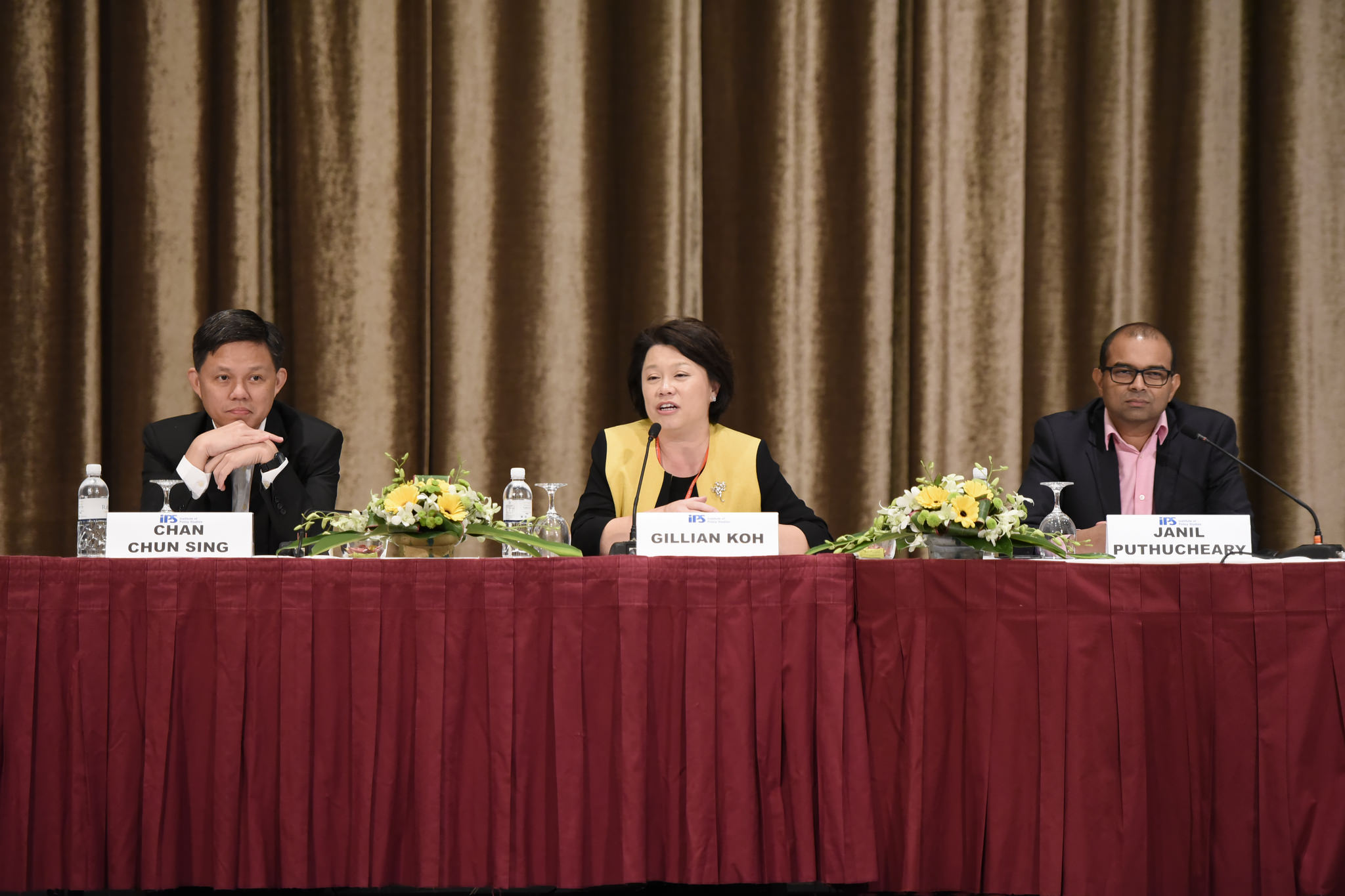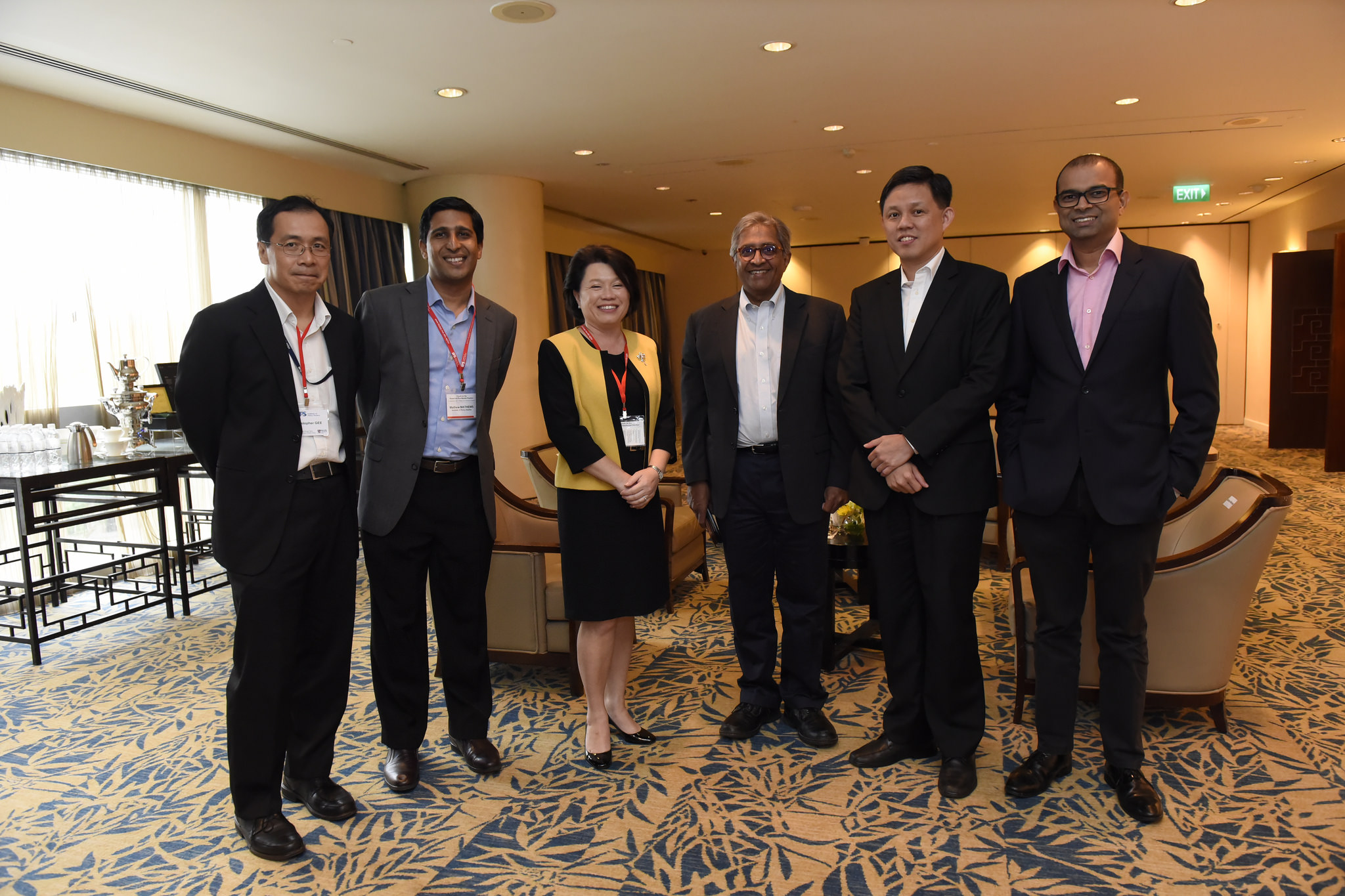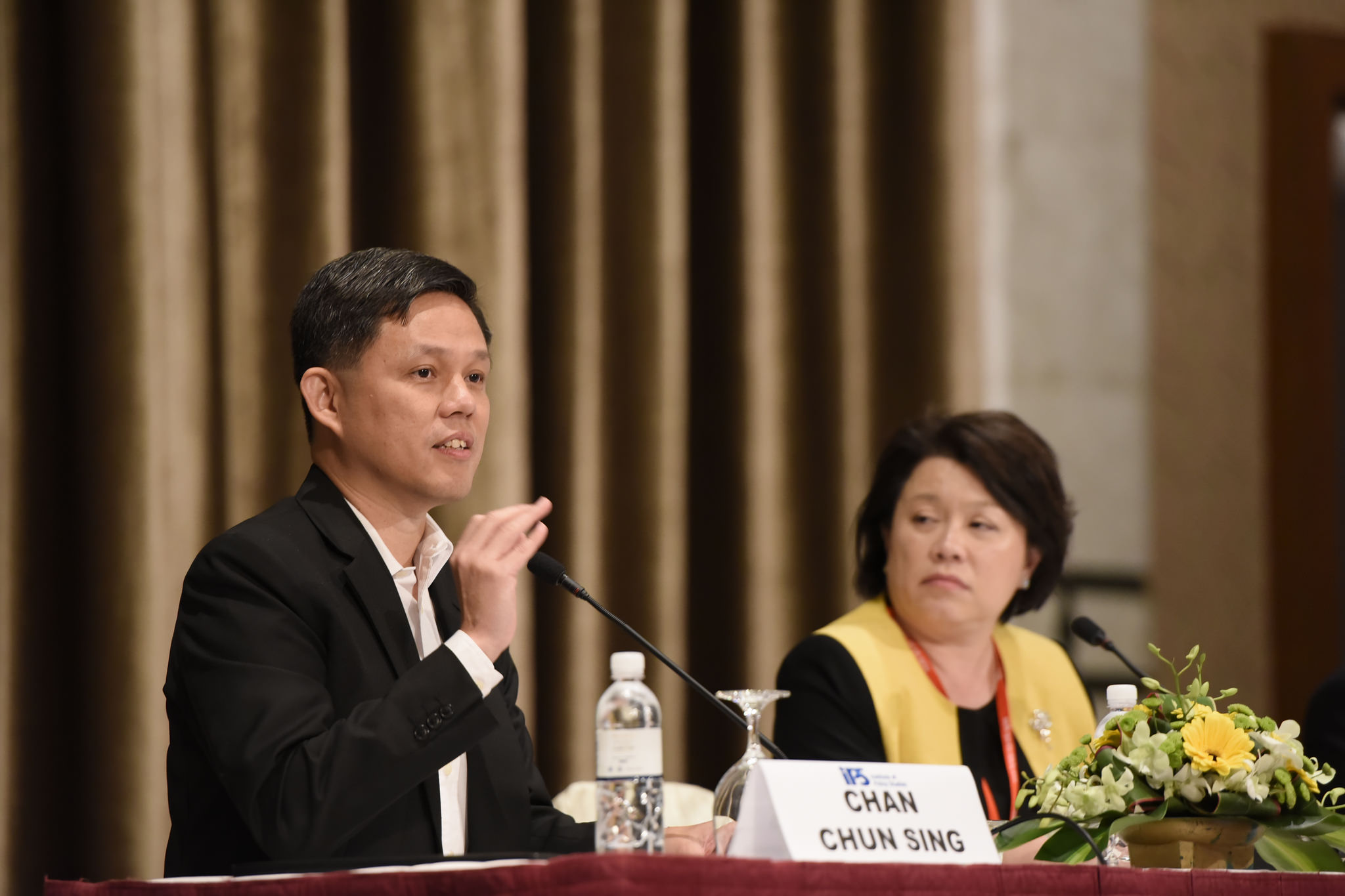So here we are, less than a week before Nomination Day for this year's Presidential Election on Sept. 13, and there is still intense debate over the need for a reserved election for minorities, the definition of a Malay and the qualification criteria.
And that was what played out over a half-day forum on Friday (Sept. 8) organised by the Institute of Policy Studies (IPS) on the reserved Presidential Election.
Anchoring the last dialogue at the forum, Minister in the Prime Minister's Office and Secretary-General of the National Trades Union Congress (NTUC) Chan Chun Sing asked the audience a question, which many kee chiu raised their hands in response to.
He wanted to know how many in the audience thought that the ruling People's Action Party (PAP) will pay a political price for implementing the amendments to the Elected Presidency.
And the answer was clear: A majority.

Doing it the "heart" way
The responses from the audience were predictable, but what was also on display was Chan's trademark style of communication — direct and folksy. In a way, it was classic retail politics.
Though at times appearing somewhat contrived or quirky, it was clear that he was trying to appeal to the audience in his own way.
If Home Affairs and Law Minister Shanmugam aimed for the head in an earlier session with his one man TEDx-style talk on the Elected President (EP) as an institution, Chan went right for the heart with a series of rhetorical questions as he wrapped up at the end of his session.
Here's how he approached it:
"You may not think very much of the intelligence of the current leadership. Even if you don't think that they are the smartest people, maybe we can agree that they are not stupid right? I mean jokes aside. Then if you can see that we are going to pay a political price for this, then why do we do it? If you form the government, will you do it?
Let me suggest this. If we are all good politicians, we won't do it and we shouldn't do it. No good politicians will sacrifice their political capital for a problem that may arise for future generations. Most politicians in the world will try to preserve their political capital for themselves to manage their current problems, so what we have still not answered is, why did we do this?"
I know that there are many conspiracy theories out there. If it's for any of those conspiracy theories that you might have heard, then why are we prepared to pay the political price to do this? Is it for those conspiracy theories? Or is it for something else?
Let me be frank with you, for every conspiracy theory you heard out there, I have a very good answer for you, a very simple answer for you. If it has to do with an individual, then there are many other ways... If it is for political gains, then surely we are not achieving it as you have rightly pointed out."
[related_story]
PM Lee "always thinking for the... future of our country"
Okay, we know the individual in the conspiracy theory Chan was referring to is this guy.
There are, of course, people who are still convinced that the whole reserved election was an elaborate exercise intended to exclude him and limit the pool of candidates that qualify.
Apart from expressing the PAP's preparedness to pay the political price for their changes, Chan also took the chance to sing praises of his boss:
"I will share this real story with you. We had a conversation with PM Lee (Hsien Loong), we asked ourselves, PM, do we need to do this now? Because just like you, we have anticipated that it will be a hard journey to convince people. And we will pay the political price, at least in the short term.
PM Lee's answer will forever be etched in my mind. And that distinguished a politician from a political leader. His answer was simply this: Yes, we are likely to pay a political price; Yes, we may not have a problem here and now, but what if we have a problem 20, 30 years from now. Will the 4th, 5th, 6th generation have the liberty, and the luxury of time and space for them to put in place a system?
He took it upon himself as a political leader to put in place a system to pre-empt potential issues from arising in the future for the country. Not for himself, not for his political capital, always thinking for the country first, that he is prepared to pay the political price. And we are prepared to pay the political price because the future of our country is much more important than any political capital that we may have for this generation."
Chan is stepping up to sell difficult policies

Now here's something else we noticed about Chan.
It is a well-known fact that he is one of the core members of the 4G leadership, given his rapid ascent to full Ministerial positions and the post of NTUC Sec-Gen since he entered politics in 2011.
Singaporeans will soon find out if he will progress to bigger things before the end of this term of government as leadership renewal gathers pace in the coming years.
His performance, effective or otherwise, at Friday's IPS forum is perhaps a sign of things to come for someone being groomed for greater responsibilities, and who has to step up to sell difficult and unpopular policies to the general populace, seeking their support and understanding.
Here, we leave you with one of his last quotes to chew on:
"So you are right, it's a very difficult decision. But we owe it to ourselves and we owe it to our future generations to put in place systems to pre-empt issues. If the issues don't arise in the future as one of you has suggested, we will be very happy, very proud. And maybe we have done our little bit for the future of Singapore to be better.
But we will not be able to face the future generations, if we have not done what we can within our means to establish that foundation for them to be even more successful than us."
Motherhood-ish and clichéd? Impossibly altruistic?
Maybe. But that is still Chan, a future leader of the 4G leadership, trying his best to persuade Singaporeans that the EP is something that we all need to care about.
All images from IPS' Flickr page
If you like what you read, follow us on Facebook, Instagram, Twitter and Telegram to get the latest updates.



